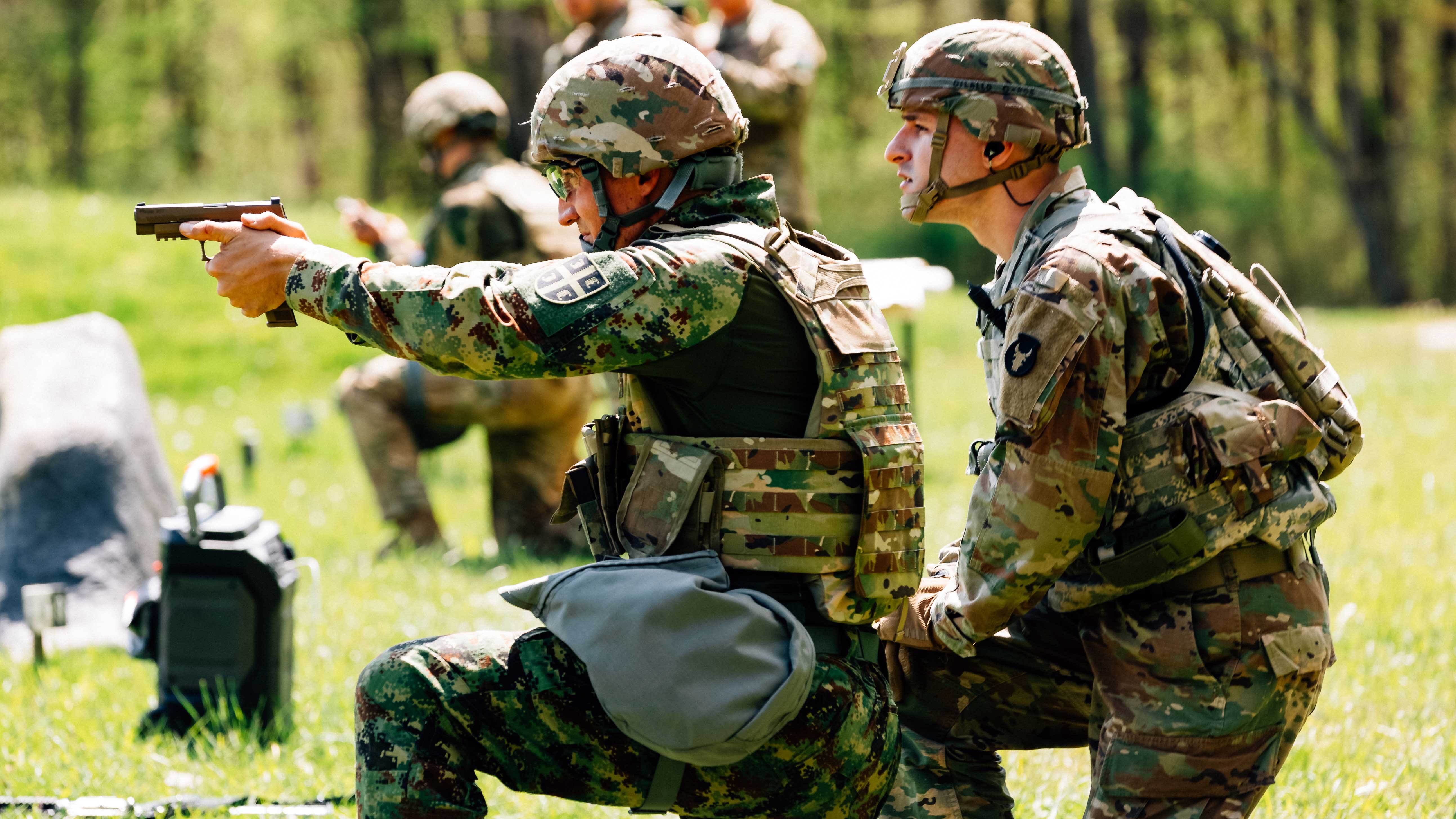Growing State Partnership Program Turns 30
Growing State Partnership Program Turns 30

As the National Guard’s State Partnership Program marks its 30th anniversary, the program is poised to continue expanding, bolstering its mission of building enduring relationships with America’s partners and allies around the world.
“The Guard is currently partnered with more than half of the world’s nations, and we expect to see continued growth in the coming years,” Maj. Gen. William Zana, director of strategic plans and policy and international affairs at the National Guard Bureau, said during a meeting with members of the media.
While the program has grown at a rate of about two nations a year since 1993, five were added in the last year alone, bringing the number of partnerships to 100. The milestone achievement was not intended to coincide with the 30th anniversary of the program, Zana said. “It’s just kind of how the program has evolved,” he said, and it is expected to continue growing.
“We’ve got capacity within the Guard to be able to support additional partnerships and additional missions, training opportunities and exercises,” he said.
To celebrate the program’s 30th anniversary, the National Guard Bureau hosted a two-day conference in July. Some 600 participants from 90 nations attended, including ministers and chiefs of defense, diplomats, combatant commanders, state adjutants general, senior enlisted leaders and speakers and panelists from across the U.S. government, including the White House and the departments of State and defense. “An event of this magnitude is unprecedented in the program’s history,” Zana said.
Launched in 1993 to help establish military ties with 13 former Soviet bloc nations, the State Partnership Program (SPP) is a joint security cooperation program led by DoD in conjunction with the State Department and the six geographic combatant commands. It is managed by the National Guard Bureau.
The worth of the SPP was further amplified by the 2022 National Defense Strategy, which cites “mutually beneficial alliances and partnerships” as one of the United States’ enduring strengths, Gen. Daniel Hokanson, chief of the National Guard Bureau, said on the opening day of the conference.
“There are so many benefits to our cooperation—stronger diplomatic relations, greater prosperity, advancements in science and technology, improved resilience in the face of adversity and a stable, more peaceful world for generations to come,” Hokanson said, noting that these alliances and partnerships “will be more critical in the years ahead.”
Many states have more than one partnership, and some partnerships involve several nations, such as the Regional Security System, a partnership comprising seven Caribbean nations managed by the National Guard in Florida and the U.S. Virgin Islands, according to the National Guard Bureau.
Over its three decades, the program has grown steadily, forging geopolitical inroads and cementing deep personal relationships through thousands of military-to-military engagements each year between the nations and the National Guard in the 54 U.S. states, territories and the District of Columbia.
States and territories compete for partnerships through a selection process that must be approved by the defense secretary. Countries also can approach U.S. embassies about joining the program.
Military engagements are focused on activities such as cyber defense and communications security, medical capacity, aviation operations, disaster and emergency response, small-unit and individual infantry tactics, leader development, professionalization of the NCO corps, engineering and counterterrorism.
Hokanson pointed out that while there may be separations by language or distance, “we are united in what we seek, a peaceful, stable world, safe countries and safe citizens, and together we step closer to making these things possible.”
The challenges faced by all countries, such as climate change, energy crises, the potential for pandemics and the threat of malevolent actors, he said, “aren't confined to a single country, a single region, or a single hemisphere, both directly and indirectly. They impact all of us, they are our collective problem, and addressing and overcoming them is our collective responsibility.”

